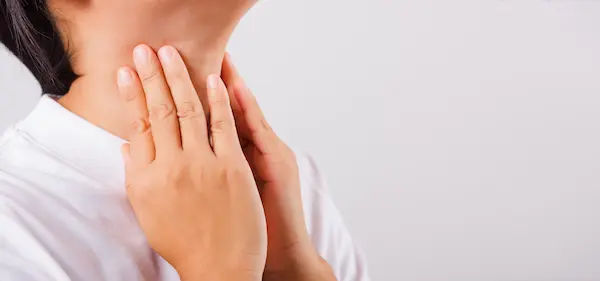- female
- 30 Years
- 31/03/2021
Can you get pregnant after thyroidectomy?
Answered by 1 Apollo Doctors
Yes, it is definetly possible to get pregnant after thyroidectomy but you may face some challenges due to secondary hypothyroidism post surgery. A study published in August 2015 in the "Journal of Pregnancy" found that women with hypothyroidism were less likely to become pregnant and more likely to take longer to become pregnant than women without the condition. You need to consult a doctor and take treatment accordingly.
Dr. Chandra Suggests...
Consult a Endocrinologist
Answered 04/07/2025
0
0


Ask Apollo
AI powered Health Chatbot
A 30-year-old woman can generally become pregnant after a thyroidectomy, provided her thyroid hormone levels are well managed. Key points to consider include:
-
Thyroid Hormone Replacement: a. Lifelong thyroid hormone replacement therapy is usually necessary to maintain normal hormone levels.
-
Fertility Impact: a. Properly controlled thyroid hormone levels typically allow normal ovulation and fertility.
-
Pregnancy Management: a. Close monitoring by an endocrinologist and obstetrician during pregnancy is important to adjust hormone doses and ensure maternal and fetal health.
-
Potential Risks: a. Untreated or poorly managed thyroid hormone levels can affect fertility and pregnancy outcomes, but with good management, many women have successful pregnancies.
Discuss with your healthcare provider about your thyroid hormone status and plans for pregnancy to ensure the best care.
Recommended next steps
Consult a Endocrinologist or Consult a Obstetrician and Gynaecologist
Answered 20/08/2025
0
0
More Endocrinology Health Queries
View allI'm really worried about my wife's thyroid levels. Her TSH is 12.12, T3 is 103, and T4 is 5.6. She's been having these mood swings, dry skin, constipation, headaches, and her voice sounds kind of child-like. She's 30. What kind of medication might help with this?
Your wifes thyroid levels suggest hypothyroidism, as indicated by the elevated TSH. She may need thyroid hormone replacement therapy, typically Levothyroxine, to regulate her thyroid function. It's best to consult her doctor for a precise dosage based on her specific needs and symptoms.
Answered by 1 Apollo Doctors
What precaution should a diabetic patient take?
Prefer low GI index foods like vegetables, lentils and avoid fried foods and foods rich in fat, carbohydrates and sugar. Keep an eye on your glucose levels.
Answered by 1 Apollo Doctors
Which exercise is best for thyroid?
A program of low impact aerobics and strength traning is best
Answered by 1 Apollo Doctors
Disclaimer: Answers on Apollo 247 are not intended to replace your doctor advice. Always seek help of a professional doctor in case of an medical emergency or ailment.



